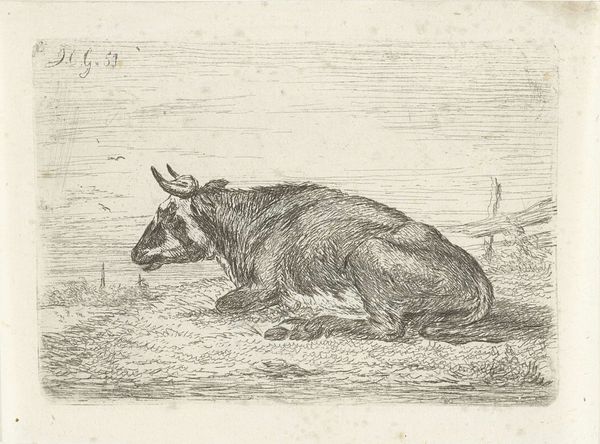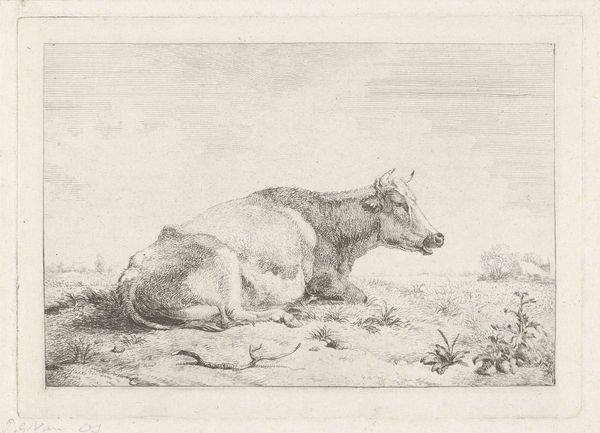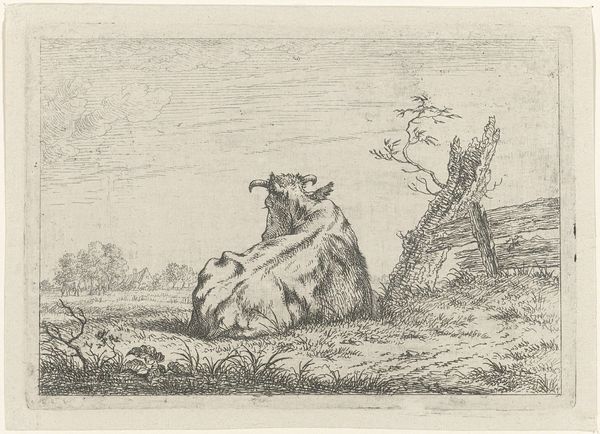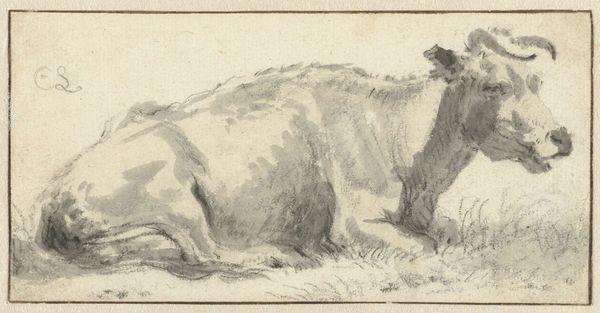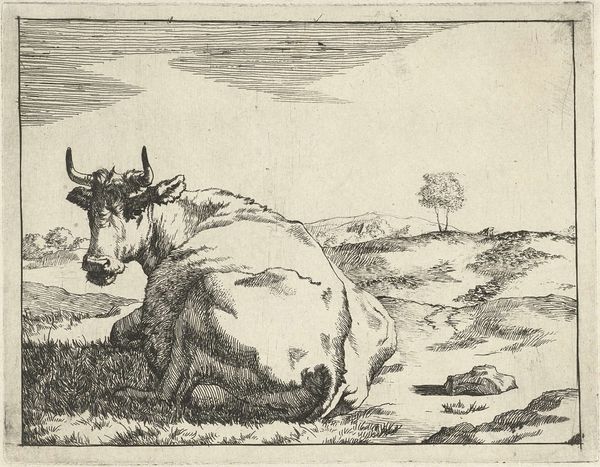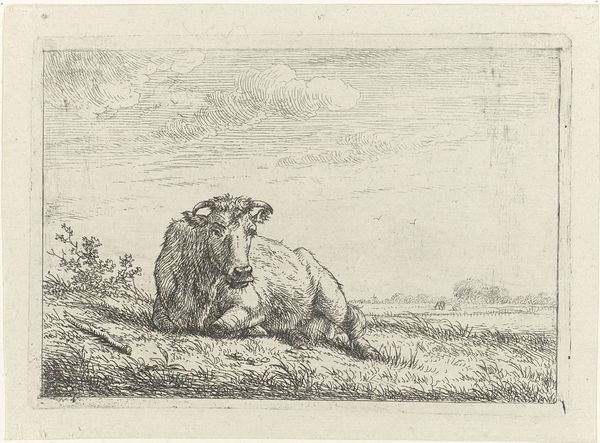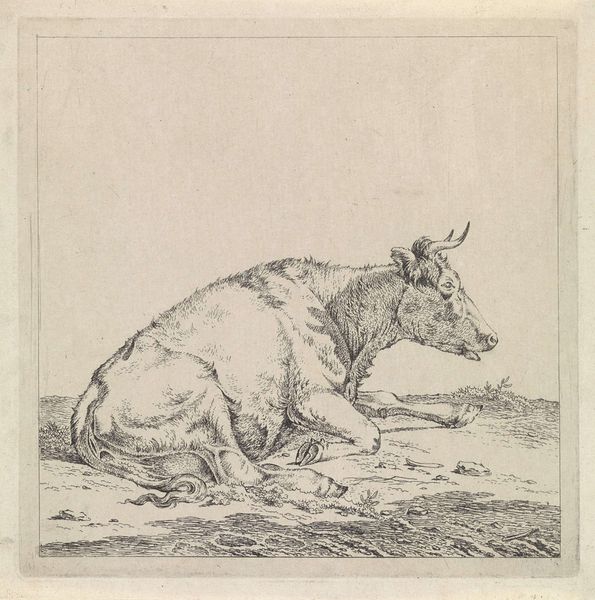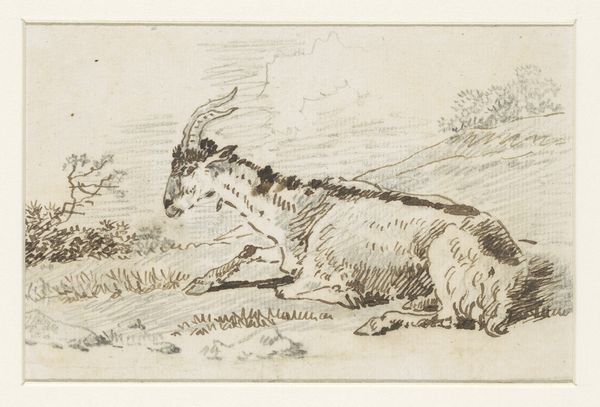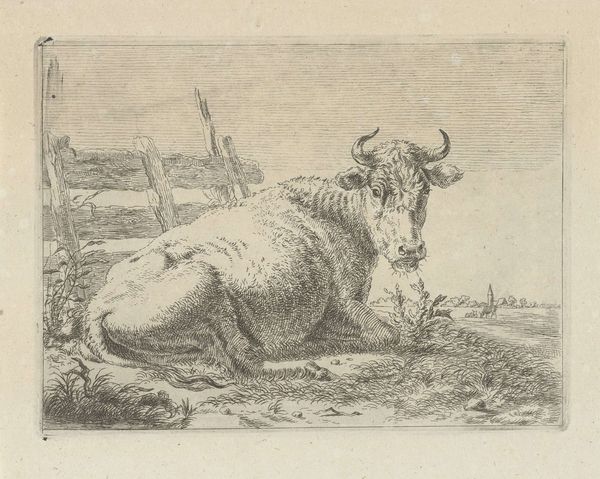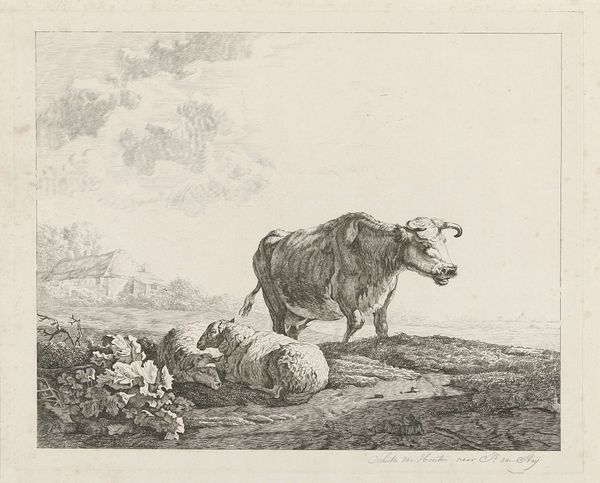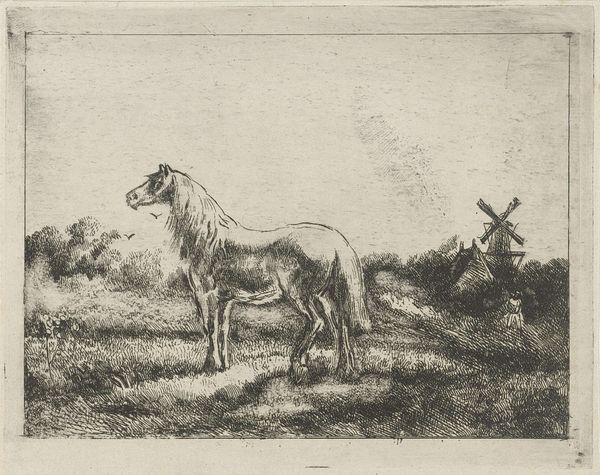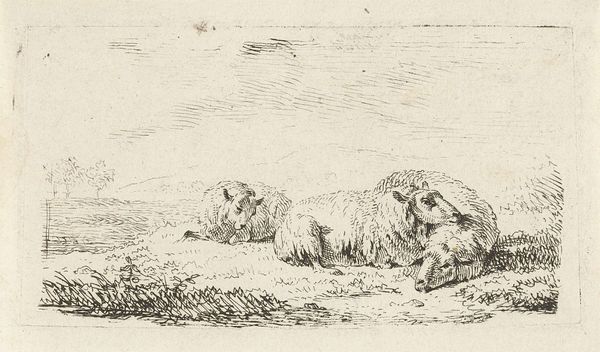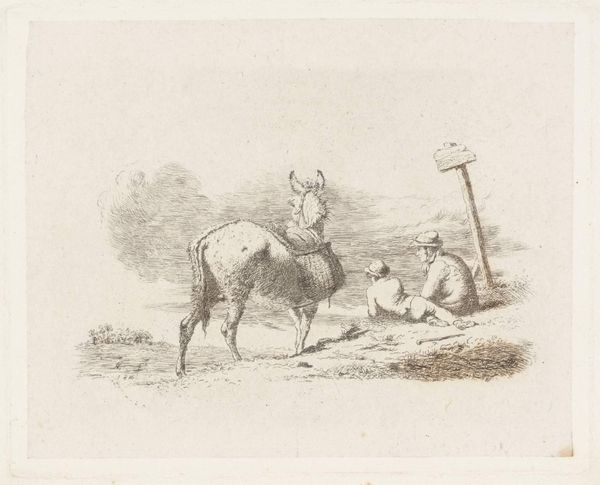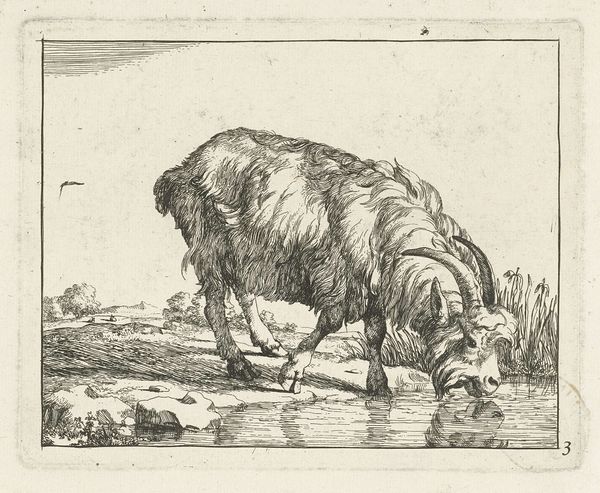
Dimensions: height 155 mm, width 215 mm
Copyright: Rijks Museum: Open Domain
Pieter Gerardus van Os created this etching of a cow in a field sometime before 1836. The medium of etching involves biting lines into a metal plate with acid, a process demanding both technical skill and careful planning. The physical characteristics of the etching process greatly influence the artwork's aesthetic. The precise, delicate lines capture the texture of the cow's coat and the surrounding landscape. These weren’t spontaneous gestures, but a testament to labor and control. In the context of the Dutch landscape tradition, this etching reflects the growing importance of agriculture and animal husbandry to the Dutch economy. The level of detail suggests an appreciation for the animal's economic value. The etching immortalizes not just a scene, but a way of life deeply entwined with labor, land, and the burgeoning market economy. Ultimately, understanding the materials and processes behind this seemingly simple image allows us to appreciate the social and cultural significance embedded within. It bridges the gap between fine art and the everyday realities of labor and production.
Comments
No comments
Be the first to comment and join the conversation on the ultimate creative platform.
